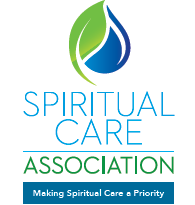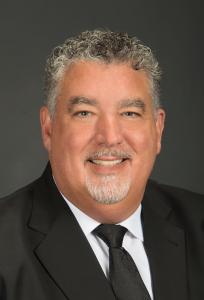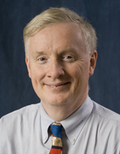How Chaplains Can Help People Navigate Today’s Mental Health Challenges
Spiritual Care Association Committed to Developing Resources, Tools for Chaplains to Become Better Educated in Issues of Mental and Behavioral Health
NEW YORK, NEW YORK, UNITED STATES, April 28, 2022 /EINPresswire.com/ -- In addition to inflicting pain, suffering, and death, the COVID-19 pandemic has created significant psychosocial stress on people everywhere. Compiled research from a number of recent international studies reveals startling facts. Almost a third of all respondents exhibited symptoms of anxiety, with significant numbers also showing symptoms of depression, sleep disorders, and PTSD.In the United States, almost one million people have already died with COVID, and it’s likely that this death toll will rise as people die from delayed treatment of other illnesses such as colon cancer or heart disease. The disruption of normal social life and the increase in loneliness, stress, worry, and helplessness due to COVID have fundamentally altered many aspects of life in America. As a result, alcohol consumption has significantly increased, as has the use of cannabis, and there is an alarming rise in reported rates of drug overdoses.
The aftermath of the pandemic will likely impact the mental health of Americans for years to come. Many who had COVID will have persistent neurological and cognitive symptoms including fatigue, pain, depressive symptoms, memory fog and many other new, unexplained conditions. Their distress may be worsened by the blizzard of medical misinformation that abounds online. Many people have resorted to these unreliable online sources of information during the pandemic. Numerous social media sites have spread falsehoods, sometimes maliciously, that confuse or distress the average person and contribute to a general lack of faith in science and expert medical advice.
These physical, mental, and moral injuries to Americans will require extensive healing as well as recovery after the pandemic abates. As experts each in our own fields of spiritual care and mental health, we are convinced that professional healthcare chaplains and other properly trained spiritual care providers can play an important role in the healing of people suffering mental and emotional distress. Well-informed chaplains will have the opportunity to approach patients, families, religious leaders, healthcare workers, and other colleagues with an abundance of reality-based optimism and understanding, as well as large doses of empathy and hope. Here are some examples:
— The pandemic has revealed the impact of online misinformation, as well as opening a divide between our nation’s health care scientists and some within the public. Well-informed chaplains can play a critical role in restoring trust and promoting better communication about healthcare as the country moves forward.
— The national shortage of mental health professionals may result in people seeking mental health assistance from chaplains, faith leaders, and other spiritual care providers. Chaplains can normalize the conversation about seeking help for these symptoms and advocate for access to local mental health services that meet the needs of their community.
— As safe harbors and truth tellers in healthcare, chaplains can become trusted colleagues to religious leaders in their community, encouraging them to use reliable sources of information with their congregations for both vaccination and treatment of COVID, as well as other illnesses.
— Chaplains should be sensitive to the aftermath of social isolation, bereavement, and doubt that has been generated over the last two years. Many in their communities may have lost faith in medical, political, or religious leaders. While they recognize and validate the reality of individual experiences, chaplains can also encourage participation in trusted faith-based and social communities as a primary source of human interaction versus anonymous internet communications.
— Many chaplains have witnessed firsthand the dedication of their frontline medical colleagues and essential workers who risked their lives and the safety of their families to serve others. They can offer compassionate support and non-judgmental listening for colleagues in distress, and they can lead the effort to acknowledge the contributions and sacrifices of all of our healthcare heroes wherever they work.
The Spiritual Care Association is committed to developing the resources and tools chaplains need to become better educated around issues of mental and behavioral health. In future articles, we will focus on certain segments of society such as children and young adults, the elderly, and healthcare workers, looking at how they have been affected mentally, emotionally, and spiritually by the pandemic and suggesting ways chaplains might support them now and in the days and months to come.
Rev. Eric J. Hall, DTh, APBCC
Richard E. Powers, M.D.
Reverend Eric J. Hall, DTh, APBCC, is President and Chief Executive Officer of HealthCare Chaplaincy Network, Inc. and the Spiritual Care Association. He is also Chancellor of the SCA University of Theology and Spirituality. Eric also serves as pastor of the Eastchester Presbyterian Church and the Lincoln Academy for early childhood learning. Formerly, he was the founder, President and CEO of the Alzheimer’s Foundation of America. He can be reached at EJHall@SpiritualCareAssociation.org.
Richard E. Powers, M.D. is a geriatric psychiatrist and a neuropathologist. He was trained in pathology at the University of Kentucky as well as psychiatry and neuropathology at the Johns Hopkins Hospital. He is board certified in general psychiatry, and general pathology. Dr. Powers is Medical Director for Behavioral Health at VIVA Inc., the UAB health insurance entity; he is also Adjunct Professor of Pathology, Department of Pathology, the University of Alabama at Birmingham. He can be reached at rpowers@uabmc.edu.
Molly Sabala
HealthCare Chaplaincy Network
+1 212-644-1111
email us here
Visit us on social media:
Facebook
Twitter
LinkedIn
Legal Disclaimer:
EIN Presswire provides this news content "as is" without warranty of any kind. We do not accept any responsibility or liability for the accuracy, content, images, videos, licenses, completeness, legality, or reliability of the information contained in this article. If you have any complaints or copyright issues related to this article, kindly contact the author above.



